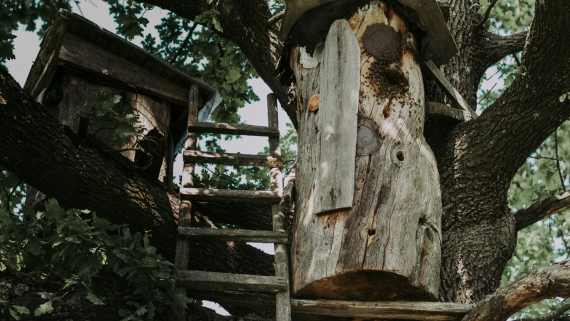
Delicious traditions, crafts and rituals of Rivne region today: baked fish on straw and boarding
Jul 29, 2020
We continue a series of publications about the culinary expeditions of the NGO "Agency for Sustainable Development of the city", which promote the culinary traditions and intangible heritage of Rivne and Rivne region. The article preserves the dialect of the region and the direct language.
Cooking fish on straw in the oven, boarding and creating a haze, the tradition of honoring old trees - all the team of the NGO "Agency for Sustainable Development of the city" brought from a culinary expedition to the villages of Dubrovytsia and Rokytne districts and will share with you.
Polissya is a land of centuries-old giants of oaks, ancient forests, untouched swamps and lakes rich in various fish. You can combine your vacation here with picking berries, mushrooms, medicinal plants, or fishing. And it is really worth trying the taste of traditional Polissya carp, crucian carp, lobster baked in a straw oven.
Every housewife knows this recipe for cooking fish and teaches her children how to cook it. Peeled salted fish is placed on straw and baked in the oven at low temperature during the day. So the hostess used the last heat in the oven, and the fish there seemed to grind, and the straw gave off its aroma and did not allow the fish to burn. The cooking process is very simple, but the taste is simply incredible. This fish tastes very good with beer or kvass. Modern craft producers have already taken into account this recipe for fish, so when you taste it in a bar, restaurant or buy in a store, remember that it is according to our regional Polissya recipe.
Polissya region is also known for its centuries-old tradition of boarding. This is a traditional type of folk craft, a forest form of beekeeping. To extract honey, beekeepers first kept bees in natural or artificial tree hollows, and later in specially made log hives, which were hung from forest trees or housed in farmsteads. The peculiarity of the taste of this honey was that it was collected by wild forest bees.
Traditionally, boarding was a male occupation. It was inherited through the male line, along with the boards and apiaries. Thus dynasties of hereditary beekeepers were formed. Today, about 100 hereditary boarders work in the Polissya region. Today, this ancient craft is included in the list of intangible cultural heritage of Ukraine.
Honey has always been in the kitchen of housewives. It was added to porridge, pancakes, often used in making sweets with berries and nuts. Therefore, Bortnytsya honey was an integral delicacy in Polissya families.
Polissya traditions - whether culinary, or craft, beliefs or rituals - are all our history, the heritage of our ancestors and generations. It is extremely rich and inexhaustible. In order for this intangible heritage not to disappear over time, it is very important to preserve it and tell the world about it.The project "Cultural Heritage of the Kitchen - Promotion of Culinary Traditions through the Professionalization of the Gastronomic Offer of Lublin and Rivne" was created and implemented with the financial support of the European Union under the Cross-Border Cooperation Program Poland-Belarus-Ukraine 2014-2020.
The content is the sole responsibility of the NGO "Agency for Sustainable Development of the City", and it does not reflect the position of the European Union.

